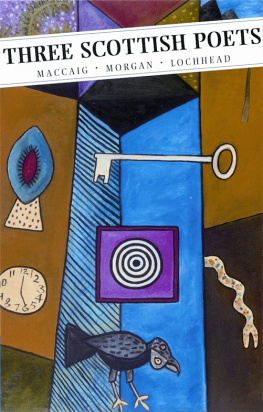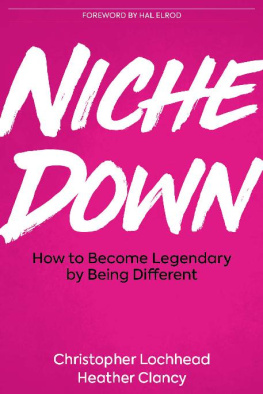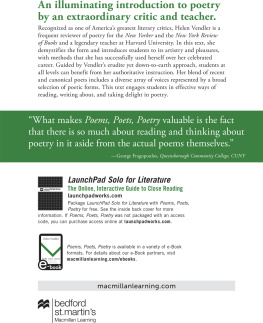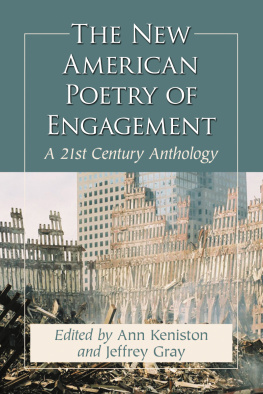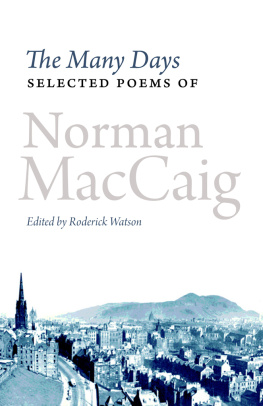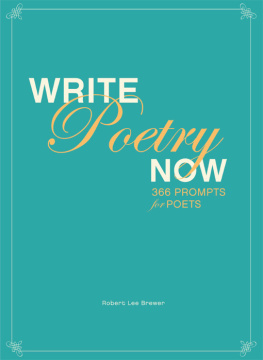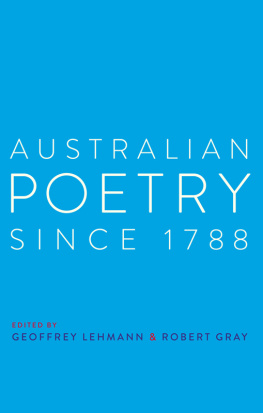B ORN IN E DINBURGH in 1910, Norman MacCaig was educated at the Royal High School and Edinburgh University where he took an Honours degree in Classics, graduating in 1932. After training as a schoolteacher he has followed the profession and lived in Edinburgh for most of his life. He married his wife Isabel in 1940 and they raised a family of two children. When war broke out a deeply held personal conviction against killing led MacCaig to become a conscientious objector and he passed the war years in non-military work, but not before undergoing a spell in prison for his beliefs. He became the first writer in residence at Edinburgh University between 1967 and 1969; and in 1970 he went on to work for eight years as a regular member of staff, and later as a Reader, in the English Department at the University of Stirling. The Queens Medal for Poetry is among the many honours he has since received.
Sixteen books of his poetry have appeared between 1943 and 1988, and an expanded edition of his Collected Poems marked his eightieth birthday in 1990. MacCaigs first poems appeared in the periodicals of the thirties and forties, and were associated with the New Apocalypse movement. He has since disowned his first two collections, however, as unnecessarily obscure. Clarity, simplicity and a classical balance have characterised his work ever since, but the interest in landscape was there from the first, and a questing, wry, metaphysically speculative, witty and sceptical turn of mind has been an equally constant quality. In poem after poem throughout his long career MacCaig has celebrated the physical worldmemorably realised in the particular details of landscape, or in the smaller animals which inhabit itto give us life, delight and sheer surprise, seen for example in Toad, Vesteys Well and Basking Shark. In this respect MacCaig has something in common with the Gaelic tradition of praise poems, and indeed he has kept in touch with his mothers Highland rootsshe came from Scalpay, Harris by spending the summer months of almost every year in Inverkirkaig, to the south of Lochinver on the west coast.
Poems such as Crofters Kitchen: Evening, Return to Scalpay, A Man in Assynt, Aunt Julia, Among Scholars, and the moving sequence Poems for Angus, all speak of MacCaigs love for Highland Scotland, the people he knows there, and the modest but enduring values of common wisdom, community and care which they embody. By the same token he has had a life-long hatred of hypocrisy, cant, pretension and cruelty; nor does he turn his eyes away from the suffering or the inequalities to be found in the world (Visiting Hour, Assisi, Blind Horse and Two Thieves). Perhaps MacCaigs finest achievement has been to unite all these elements of his vision in poems which combine wit, wry humour and celebration with an essentially tragic recognition of how quickly life passes. This recognition is usually implicit and never solemn, but the compassion and the grace to be found in poems such as Memorial, Incident, Notations of Ten Summer Minutes and Water Tap have given us some of the finest short lyrics of our time.
Lets choose a pretty word, say,
evening, And climb through it into the past, Or stand on a towering If, surveying The rosy kingdoms we have lost. From every corner creep a thousand Boredoms saying,
Greet us.
Were life. Lets round the sunset up and milk it Into a jug and drink it off. Or in the hawthorn let us tangle Our dreary look like gossamer To shudder with that sparrows chirping And when the dew falls be on fire. Or drag the distance home and chain it There in the corner of the room To charm us with its savage howling And beg for fragments of our dream. Theres a clue somewhere. Can you find it? Can you say over and over again Love, till its incantation makes us Forget how much we are alone?
Straws like tame lightnings lie about the grass And hang zigzag on hedges.
Green as glass The water in the horse-trough shines. Nine ducks go wobbling by in two straight lines. A hen stares at nothing with one eye, Then picks it up. Out of an empty sky A swallow falls and, flickering through The barn, dives up again into the dizzy blue. I lie, not thinking, in the cool, soft grass. Afraid of where a thought might take meas This grasshopper with plated face Unfolds his legs and finds himself in space.
Self under self, a pile of selves I stand Threaded on time, and with metaphysic hand Lift the farm like a lid and see Farm within farm, and in the centre, me.
One duck stood on my toes. The others made watery rushes after bread Thrown by my momentary hand; instead, She stood duck-still and got far more than those. An invisible drone boomed by With a beetle in it; the neighbours yearning bull Bugled across five fields. And an evening full Of other evenings quietly began to die. And my everlasting hand Dropped on my hypocrite duck her grace of bread.
And I thought, The first to be fattened, the first to be dead, Till my gestures enlarged, wide over the darkening land.
The thatched roof rings like heaven where mice Squeak small hosannahs all night long, Scratching its golden pavements, skirting The gutters crystal river-song. Wild kittens in the world below Glare with one flaming eye through cracks, Spurt in the straw, are tawny brooches Splayed on the chests of drunken sacks. The dimness becomes darkness as Vast presences come mincing in, Swagbellied Aphrodites, swinging A silver slaver from each chin. And all is milky, secret, female. Angels are hushed and plain straws shine.
And kittens miaow in circles, stalking With tail and hindleg one straight line.
He knew better than to admire a chair and say What does it mean? He loved everything that accepted the unfailing hospitality of his five senses. He would say Hello, caterpillar or So long, Loch Fewin. He wanted to know how they came to be what they are: But he never insulted them by saying Caterpillar, Loch Fewin, what do you mean? In this respect he was like God, though he was godless.He knew the difference between What does it mean to me? and What does it mean? Thats why he said, half smiling, Of course, God, like me, is an atheist.
The hare we had run over bounced about the road on the springing curve of its spine. Cornfields breathed in the darkness.
We were going through the darkness and the breathing cornfields from one important place to another. We broke the hares neck and made that place, for a moment, the most important place there was, where a bowstring was cut and a bow broken for ever that had shot itself through so many darknesses and cornfields. It was left in that landscape. It left us in another.
The hospital smell combs my nostrils as they go bobbing along green and yellow corridors. What seems a corpse is trundled into a lift and vanishes heavenward.
I will not feel, I will not feel, until I have to. Nurses walk lightly, swiftly, here and up and down and there, their slender waists miraculously carrying their burden of so much pain, so many deaths, their eyes still clear after so many farewells. Ward 7. She lies in a white cave of forgetfulness. A withered hand trembles on its stalk. Eyes move behind eyelids too heavy to raise.
Into an arm wasted of colour a glass fang is fixed, not guzzling but giving. And between her and me distance shrinks till there is none left but the distance of pain that neither she nor I can cross. She smiles a little at this black figure in her white cave who clumsily rises in the round swimming waves of a bell and dizzily goes off, growing fainter, not smaller, leaving behind only books that will not be read and fruitless fruits.

